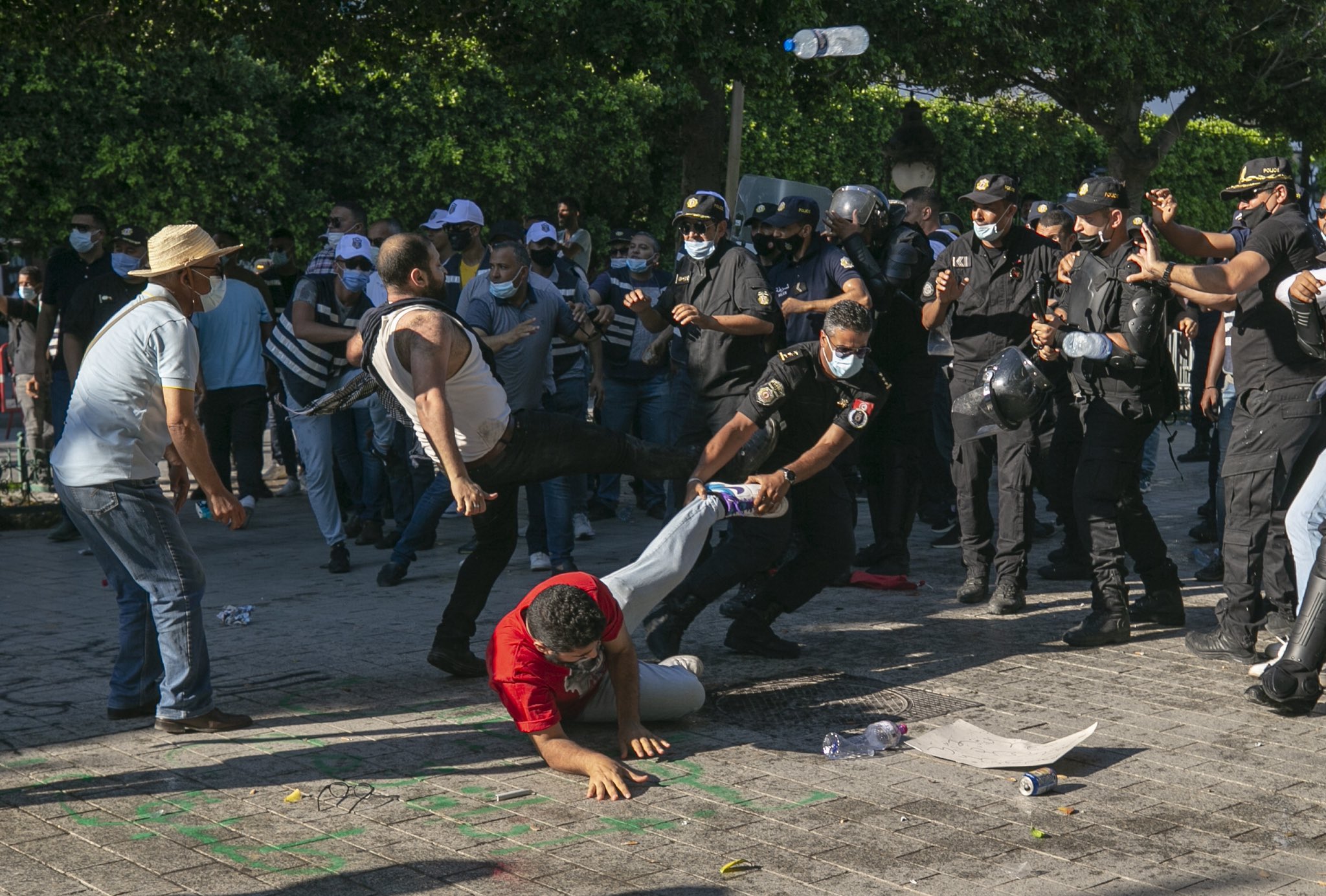Police and protesters clash on Avenue Habib Bourguiba, Tunis on 12 June 2021. Image source: @YassineGaidi
Violent protests erupted in the streets of Tunisia’s capital again on the night of Saturday the 12th of June over the recent death of a young man at the hands of police in the Sejoumi neighbourhood.
The protests were triggered by the release of a video showing police stripping and beating a young man. The police officers involved in the incident were arrested, and the prime minister said the incident was shocking and unacceptable. The family of the victim accused the police of beating him to death, which Tunisia’s interior ministry has denied.
The incident has triggered widespread anger in the country. Clashes occurred in the Sejoumi neighbourhood of Tunis, as well as earlier in the day in the center of the city, in front of the headquarters of the Interior Ministry. “Dignity and freedom for working class neighborhoods,” they chanted, accusing the Ministry of the Interior of “terrorism.” Protesters threw chairs, stones and water bottles at the police, who responded with violence. Police also used tear gas to disperse angry protesters,
Political pressure
The protests add to the pressure on the Prime Minister and also acting Interior Minister, Hichem Mechichi, to take action against police abuses, which have been an ongoing problem.
In a statement, several left-wing political parties have also spoken out. They called for a demonstration to denounce “the repressive behaviour of the regime.” Democratic Bloc’s Haykel Mekki said his party is also working on a petition to withdraw confidence from PM and Interior Minister Mechichi, and hold him accountable for serious human rights abuses.
Around 41 human rights national organisations blamed Mechichi “for the abuses made by the police.” They called on Mechichi to take urgent measures “to restore justice and dignity to the victims and their families as well as stop using the police institution to resolve the country’s social, economic and political crises.”
“A hinge point”
The interior ministry said that violations are individual incidents, and not emblematic of a systematic policy. Years ago, it launched a program to reform the law enforcement apparatus. But this incident has now raised doubts about the credibility of police reforms undertaken after the 2011 revolution.
A decade after the revolution against President Zine El Abidine Ben Ali’s repressive regime – an injust police state – Tunisia has made progress towards democracy. But economic problems have worsened and sparked repeated protests recently. In January of this year, police arrested more than 2,000 people, most of them minors. Many of them were subjected to ill treatment by the police.
Human rights activists have said police abuses are threatening to undermine the democratic gains made since 2011. In a statement released Friday, the organisations denounced “police barbaric practices”, saying they represent “a hinge point leading to a radical questioning of the notion of the republican police in Tunisia and of the nature of democratic transition in our country.”

